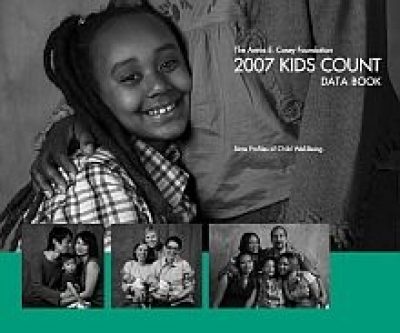Low Birthweight
Between 2000 and 2004, the percent of babies born with low birthweight increased from 7.6% to 8.1%, reaching its highest level since 1969. During the same period, the infant mortality rate declined slightly.

The KIDS COUNT Data Book is an annual publication that assesses child well-being nationally and across the 50 states. The 2007 report begins with an essay, "Lifelong Family Connections: Supporting Permanence for Children in Foster Care," which details the ways in which current child welfare practices put children at risk by emphasizing physical safety rather than creating strong, lasting family relationships that can provide emotional security. African-American children face a much higher risk of being removed from their families and placed in foster care than white children in similar circumstances. The essay describes common sense practices, illustrated with concrete examples, that aim to keep children safe while also prioritizing family permanence.
The remainder of the report provides national and state data on 10 indicators that reflect a range of factors affecting child well-being, particularly health, adequacy of income, and educational attainment. Based on a composite index of the 10 indicators, the three highest ranked states for overall child-being were Minnesota, New Hampshire and Connecticut; the three lowest ranked states were Mississippi, Louisiana and Alabama. Across the 10 indicators, there was very little change in child well-being at the national level since 2000.
Helping children become part of permanent, lifelong families should be a paramount and defining goal of child welfare systems. But to make that happen in the United States would require a fundamental shift in attitudes and policy priorities.
We hope you'll find value in this report. We’d love to get a little information from you, which we'll use to notify you about relevant new resources.